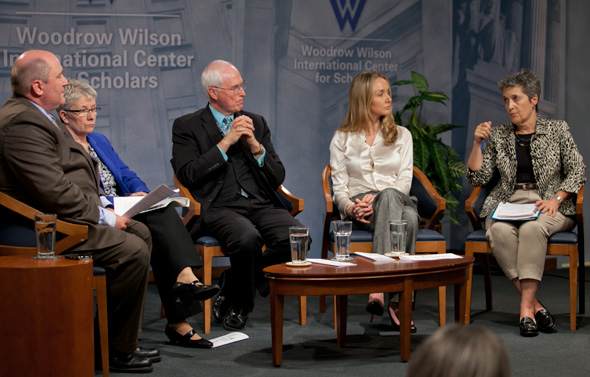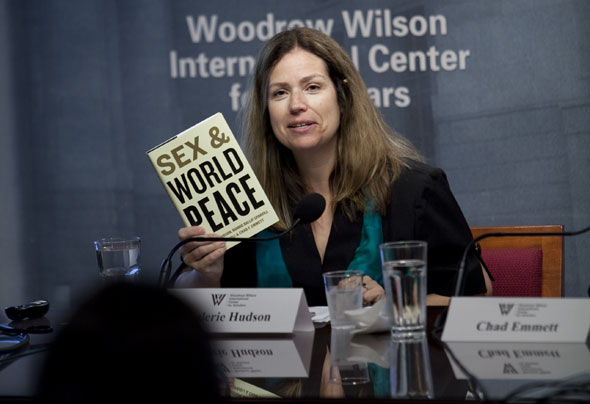-
Imelda Abano on Environmental Reporting in the Philippines
›“What we are trying to do is to explore more strategies on how to improve environmental reporting in the Philippines – and on how to reach the government and communities as well,” said Imelda Abano, president of the Philippine Network of Environmental Journalists, Inc. (PNEJ) and senior correspondent at Business Mirror, in an interview with ECSP.
With an overwhelmingly coastal population of around 95 million, the 7,150 island archipelago of the Philippines is seen as highly vulnerable to environmental and climate-related threats. One of Albano’s major aims as president of the PNEJ is therefore to “empower local journalists to report more on environmental issues like biodiversity, climate change, disaster, and other environmental challenges in the Philippines,” she said.
Compelling reporting, she said, comes from “try[ing] to understand what the government is trying to say or what researchers or other organizations are trying to say,” and then relating that information back to the people “in the layman’s terms.”
Environmental issues require a lot of context, she said. One of the most important related issues in the Philippines is population growth.
“When you talk about environment issues, it really resonates or links to population issues,” Abano said. Current UN projections estimate that by 2050, the population could balloon to nearly 155 million. “This really affects our jobs, women, culture, and of course the population around the coastal areas.” -
Poor Land Tenure: A Key Component to Why Nations Fail
›The murder of five land rights campaigners during the last two months – one in Colombia, three in Brazil, and one in Cambodia – have not captured many headlines, but they are a reminder of the central role land tenure plays not just in rural economic development but also in sparking broadly distributed economic gains throughout a society.
-
Valerie Hudson and Chad Emmett: Women’s Well-Being Is the Best Predictor of State Stability
›May 22, 2012 // By Kate Diamond“The best predictor of a state’s stability and security is the level of violence against women in society,” said Texas A&M University’s Valerie Hudson in this interview with ECSP. That link is “based on rigorous empirical analysis,” she said. “There’s something to it. It’s not just political correctness.”
-
The Global Water Security Assessment and U.S. National Security Implications
›
“Water security is about much more than access to H2O,” said Jane Harman, director, president, and CEO of the Wilson Center at the May 9 meeting, “Global Water Security: The Intelligence Community Assessment.” The event – part of the Wilson Center’s National Conversation Series – brought together a number of experts to discuss a recently released intelligence community assessment of global water security. [Video Below]
-
Sex and World Peace: How the Treatment of Women Affects Development and Security
›
“What we have discovered is that the very best predictor of how insecure and unstable a nation is not its level of democracy, it’s not its level of wealth, it’s not what ‘Huntington civilization’ it belongs to, but is in fact best predicted by the level of violence against women in the society,” said Valerie Hudson, co-author of Sex and World Peace, at an April 26 book launch at the Wilson Center. [Video Below]
-
Adenike Esiet: Building Support for Improving Adolescent Sexual and Reproductive Health in Nigeria
›“In Nigeria, young people under the age of 25 are driving the HIV epidemic…and that’s been the opening place for people to begin to say, ‘let’s address the issues of young people’s sexual and reproductive health,’” said Adenike Esiet, executive director of Action Health Incorporated in Lagos, during an interview with ECSP.
On any number of health indicators, girls suffer disproportionately. “For every one boy in the age bracket of 10 to 24 who is HIV positive, there are three girls who are HIV positive,” Esiet said. “Over 60 percent of cases of complications from unsafe abortion reported in Nigerian hospitals are amongst adolescent girls. In fact in literature, 10-15 years ago, this was described as ‘a schoolgirl’s problem’…and it’s still an ongoing problem.” She added: “And for girls too, the issue of sexual violence is huge. It goes largely unreported but it’s occurring at epidemic levels.”
Esiet spoke on an adolescent health panel during the April 25 “Nigeria Beyond the Headlines” event at the Wilson Center. Progress is slow on these issues, in large part because “there’s a whole lot of silence about acknowledging young people’s sexuality,” she said.
Adults “want to believe [adolescents] shouldn’t be sexually active.” But turning a blind eye to adolescent sexuality can mean that efforts “to provide access to education or services is hugely resisted by practitioners who should be doing this.”
Action Health works to fill the gap that emerges. “Our work covers advocacy, community outreach, and service provision for young people,” said Esiet.
“Our primary entry road in to work with young people is creating access to sexuality education and youth friendly services. And in the course of trying to do that, we have to do a whole lot of advocacy with government and also with ministries or education and ministries of health and youth development.”
The group has worked with government officials and agencies to establish a nationwide HIV education curriculum and paired with local healthcare providers to increase access to “youth-friendly” sexual and reproductive health services. Funding shortages and insufficient resources have hampered the curriculum’s success, though, and the pervasive attitude against youth sexuality has limited the reach of services, she said. Ultimately, “there are a whole range of issues that truly need to be addressed” for outreach efforts to be successful.
-
Nigeria Beyond the Headlines: Environment and Security [Part Two]
›
In the coming years, Nigeria’s cohort of unemployed youth has equal potential to “be converted into either a religious or a regional clash, as certain youths get opportunities and other youths do not,” said Pauline Baker, President Emeritus of the Fund for Peace, during the day-long “Nigeria Behind the Headlines” event at the Wilson Center on the April 25 (read part one here). [Video Below]
-
Nigeria Beyond the Headlines: Demography and Health [Part One]
›
“Nigeria is a country of marginalized people. Every group you talk to, from the Ijaws to the Hausas, will tell you they are marginalized,” said Peter Lewis, director of the African Studies Program at the Johns Hopkins University School of Advanced International Studies. Lewis spoke at an April 25 conference on Nigeria, co-hosted by ECSP and the Wilson Center’s Africa Program, assessing the country’s opportunities for development given its demographic, governance, natural resource, health, and security challenges. [Video Below]
Showing posts from category video.








